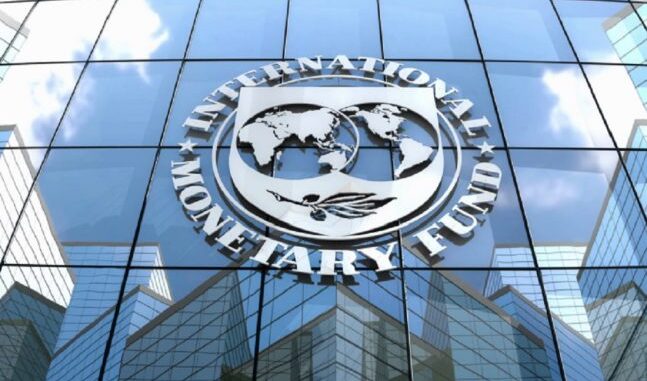
The International Monetary Fund (IMF) has warned that nearly 40 per cent of jobs across the globe could be affected by the rise of artificial intelligence, with high-income economies facing greater risks than emerging markets and low-income countries.
The Washington, D.C.-based institution assessed the potential impact of AI on the global labor market and found that, in most cases, the technology is likely to worsen overall inequality. IMF chief Kristalina Georgieva urged policymakers to tackle this “troubling trend” and to proactively take steps “to prevent the technology from further stoking social tensions.”
International Monetary Fund chief Kristalina Georgieva tells AFP in an interview that artificial intelligence poses job security risks but potentially major opportunities to boost productivity around the world.
The IMF Chief, Kristalina Georgieva, recently disclosed that Artificial Intelligence poses job security risks but potentially major opportunities to boost productivity around the world.

Speaking ahead of the annual meeting of the World Economic Forum (WEF) in Davos, Switzerland, where the topic is set to be high on the agenda, she noted that in most scenarios, AI will likely worsen overall inequality, a troubling trend that policymakers must proactively address to prevent the technology from further stoking social tensions.
“We are on the brink of a technological revolution that could jumpstart productivity, boost global growth and raise incomes around the world. Yet it could also replace jobs and deepen inequality.”
The IMF noted that about 60 percent of jobs could be impacted by AI in high-income nations, and roughly half of these may benefit from AI integration to boost productivity. Comparatively, AI exposure was estimated to come in at 40 percent in emerging markets and at 26 percent in low-income countries, respectively.
The findings suggest that emerging markets and low-income countries face fewer disruptions from AI in the short-term. The IMF notes that many of these nations don’t have the infrastructure of skilled workers to harness the immediate benefits of AI, raising the risk that the tech could worsen inequality.
The IMF also flagged that AI could affect income and wealth inequality within countries, warning of “polarization within income brackets.” As AI continues to be adapted by more workers and businesses, it’s expected to both help and hurt the human workforce, Georgieva said
Echoing previous warnings from other experts, Georgieva said the effects were expected to be felt more deeply in advanced economies than emerging markets, partly because white-collar workers are seen to be more at risk than manual laborers.
“For the other half, AI applications may execute key tasks currently performed by humans, which could lower labor demand, leading to lower wages and reduced hiring,” wrote Georgieva, citing the IMF’s analysis.
“In the most extreme cases, some of these jobs may disappear.” In emerging markets and lower income nations, 40 percent and 26 percent of jobs are expected to be affected by AI, respectively. Emerging markets refer to places such as India and Brazil with sustained economic growth, while low-income countries refer to developing economies with per capita income falling within a certain level such as Burundi and Sierra Leone.
“Many of these countries don’t have the infrastructure or skilled workforces to harness the benefits of AI, raising the risk that over time the technology could worsen inequality,” noted Georgieva.
She warned that the use of AI could increase chances of social unrest, particularly if younger, less experienced workers seized on the technology as a way to help boost their output while more senior workers struggle to keep up.
Goldman Sachs has previously warned generative AI could impact as many as 300 million jobs worldwide, although the Wall Street bank acknowledged the technology could spur labor productivity and growth and boost gross domestic product by as much as 7 percent.

The IMF report comes as business and political leaders from around the world gather at the World Economic Forum in Davos, Switzerland. The annual WEF meeting, which runs through to Friday, takes place under the theme of “Rebuilding Trust.”

Be the first to comment